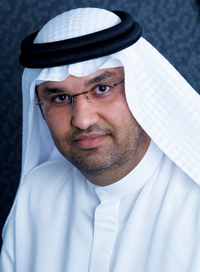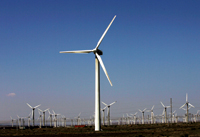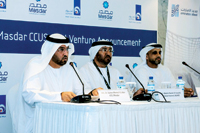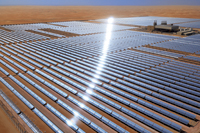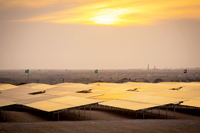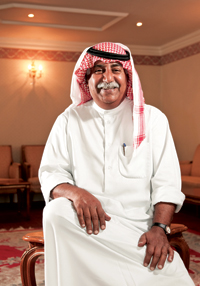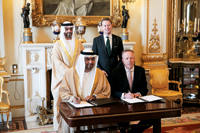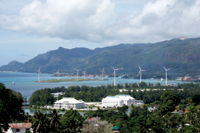
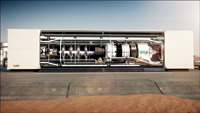 A TriGen unit developed by Maersk Oil
A TriGen unit developed by Maersk Oil
IN KEEPING with the World Future Energy Summit’s focus on environmentally sound power and water production, Maersk Oil is out to impress by showcasing its ground breaking TriGen integrated energy system, which is being touted as a natural fit for Abu Dhabi’s future energy needs.
“TriGen is a very exciting proposition for the Middle East, and WFES is the ideal platform to promote a concept which, in one package can generate 180 MW of clean electricity, fully capture 45 mmcfd of reservoir ready CO2 for enhanced oil recovery, and produce 500,000 gallons of pure water each day – and all of which can be achieved with zero emissions,” says Richard Doidge, managing director, Maersk Oil Middle East.
The system includes combustion technology, which was first developed for space rockets, burns hydrocarbon gas together with oxygen at very high temperature and pressure to produce electricity, pure water and fully captured carbon dioxide (CO2). Water and power can be provided to utility companies, while the captured CO2 can be used for enhanced oil recovery (EOR) projects, ensuring a zero emission operation.
.jpg) |
|
Doidge ... tantalising proposition |
TriGen’s multi-value process offers a cost-effective alternative to other carbon capture options. All of its products have value, and the resulting low unit cost of CO2 can be very attractive as an enabler for EOR developments.
“The Oxy-Fuel technology allows zero-emission power generation in combination with oil and gas projects and that makes it a rich offering anywhere, but in Abu Dhabi the value proposition is particularly strong. EOR operations by CO2 injection is seen to offer the best fit and highest recovery potential for many of the reservoirs here in Abu Dhabi,” says Doidge.
Chief among the many advantages of using CO2 for EOR is that it enables resource owners to maximise overall recovery. Abu Dhabi has many tight carbonate reservoirs where the effectiveness of water injection is limited as it is difficult to sweep the low permeability pore spaces with water. This is often more significant than it first sounds, given that a high percentage of the original oil in place can still be left in a reservoir after years of waterflooding operations.
“Through the implementation of CO2 EOR methods, Abu Dhabi has the potential to recover an additional 18 billion barrels, beyond what can be achieved by conventional production processes.”
Another reason TriGen is such a tantalising proposition for Abu Dhabi is that the Emirate is currently injecting significant quantities of natural gas into its oil fields to boost recovery - partly a legacy of the time when there was a surplus of gas in the emirate.
“Today, Abu Dhabi is importing gas from Qatar and other countries and part of this gas ‘deficit’ can be solved by replacing natural gas injection with CO2 injection. CO2 injection offers superior recovery potential to lean gas injection and frees up valuable natural gas for other uses,” add Doidge.
Maersk Oil’s hopes for WFES are clear, he adds: “This is a fantastic opportunity to showcase our TriGen capability, and our long standing successful partnership with Qatar Petroleum where our cooperation efforts have taken a marginal field to what is today the biggest oil producer in Qatar. We have some very exciting meetings lined up and look forward to hosting representatives of national and international energy companies on our stand.”








































































